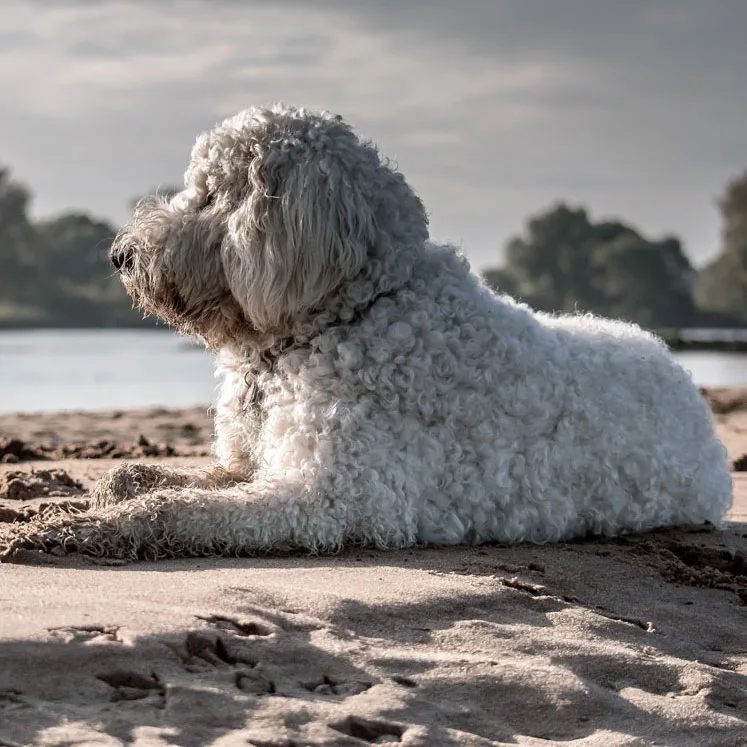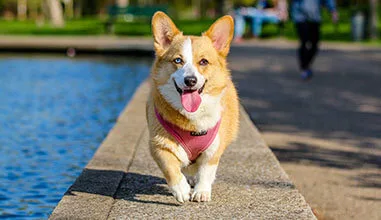
Taking your dog on holiday is a common occurrence for many owners who don’t like to leave their beloved companion at the kennels.
If you are thinking about taking your dog on holiday, there are many places that now allow our four legged friends to join us on a family holiday. Whilst enjoying our time away, it’s important to keep an eye on your pet at all times.
To ensure everyone has a great time and everything runs smoothly whilst you are on holiday, there are a few things to consider. These include:
Research where to stay
If you are taking your dog on holiday, it’s important to research areas and accommodation before you book to make sure that they are dog friendly. Also check if they are restrictive of where your pet can go and how many can stay.
Plan an itinerary
Be sure that there are plenty of dog friendly things to do whilst you are away. You don’t want to have to leave your dog at the accommodation alone, so do some research and look for places that allow dogs, such as restaurants and attractions.
Visit the vet beforehand
Take your dog to the vet for a health check before the holiday. This will enable you to ensure they are up-to-date with their vaccinations, as well as worm and flea treatment. Depending on your dog’s age, it’s also important to check they are healthy and safe to travel.
Check your pet’s details are up-to-date
Make sure that your pet is mircrochipped before you travel. This will help to return your pet quickly should they get lost. Also take your pet’s insurance documents and make sure they are up-to-date, should anything happen whilst you are away.
Pack the essentials
Make sure you take everything with you that your dog will need. Plan ahead to ensure you don’t forget anything. If your accommodation is dog friendly, they may have the basics such as water and food bowls, but be sure to check before you go.
Remember to pack your Nutravet holiday essentials, such as Nutrabio to aid your pet’s digestion should they have a sensitive gut whilst away, or Nutracalm to reduce their stress or anxiety.
Routine
Whilst you are on holiday be sure to keep the same routine as you would at home. For example, walking and food routines, as this will help your dog to settle and reduce any stress they may have. Be sure to also pack your dog’s favourite toys and blanket to make them feel less anxious in the holiday home.
Walk your dog when you arrive
When you reach your holiday home and you have unpacked, take your dog for a walk. This will help to familiarise them with the area and surroundings, as well as releasing any excess energy after being in the car during the journey.
Consider their safety
It’s important when taking your dog on holiday, that you keep an eye on your dog and ensure they remain safe at all times. Be aware of any doors and windows that they could escape from and be sure to walk them on the lead around any areas that are unfamiliar. Don’t leave your dog alone in your holiday home or in the car whilst on days out. Also be sure to supervise your dog at the beach whilst near water.
Travelling
When travelling in the car to your holiday destination, make sure that your dog is secure. If it’s a long journey it’s important to take pit stops, to let your dog stretch their legs and go to the toilet. Make sure they also have plenty of fresh water during the journey.
Remember to pack some Nutracalm, a natural calming supplement to help reduce stress for your pet whilst travelling and in new environments.
Plan for an emergency
Make sure you know where the nearest vet practice is in case of an emergency and you know how to get there. Print off a route plan before you go, just in case.
If you are worried about taking your dog on holiday, consult with your vet who is in the best position to monitor your pet’s health and ensure they are receiving the best care. Ask your vet about Nutracalm, which is specifically formulated to naturally calm anxious pets and to help reduce unwanted or unruly behaviour.

